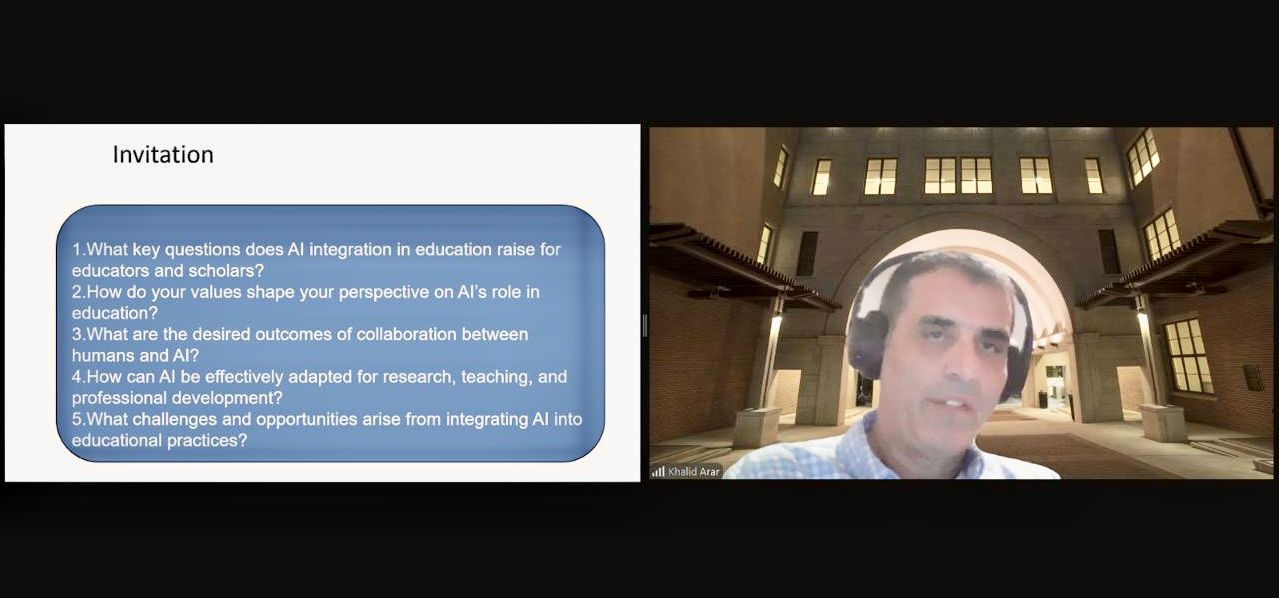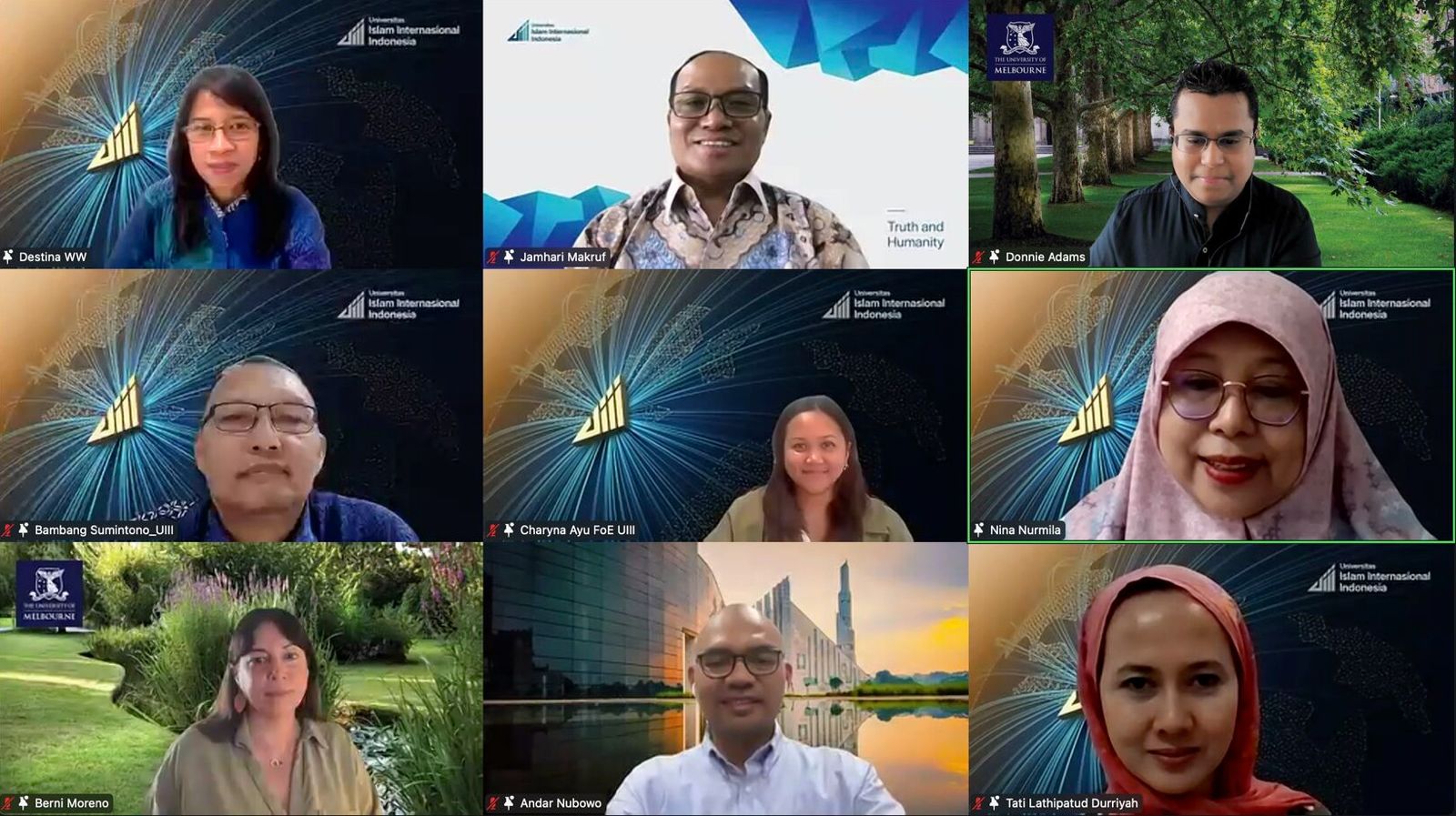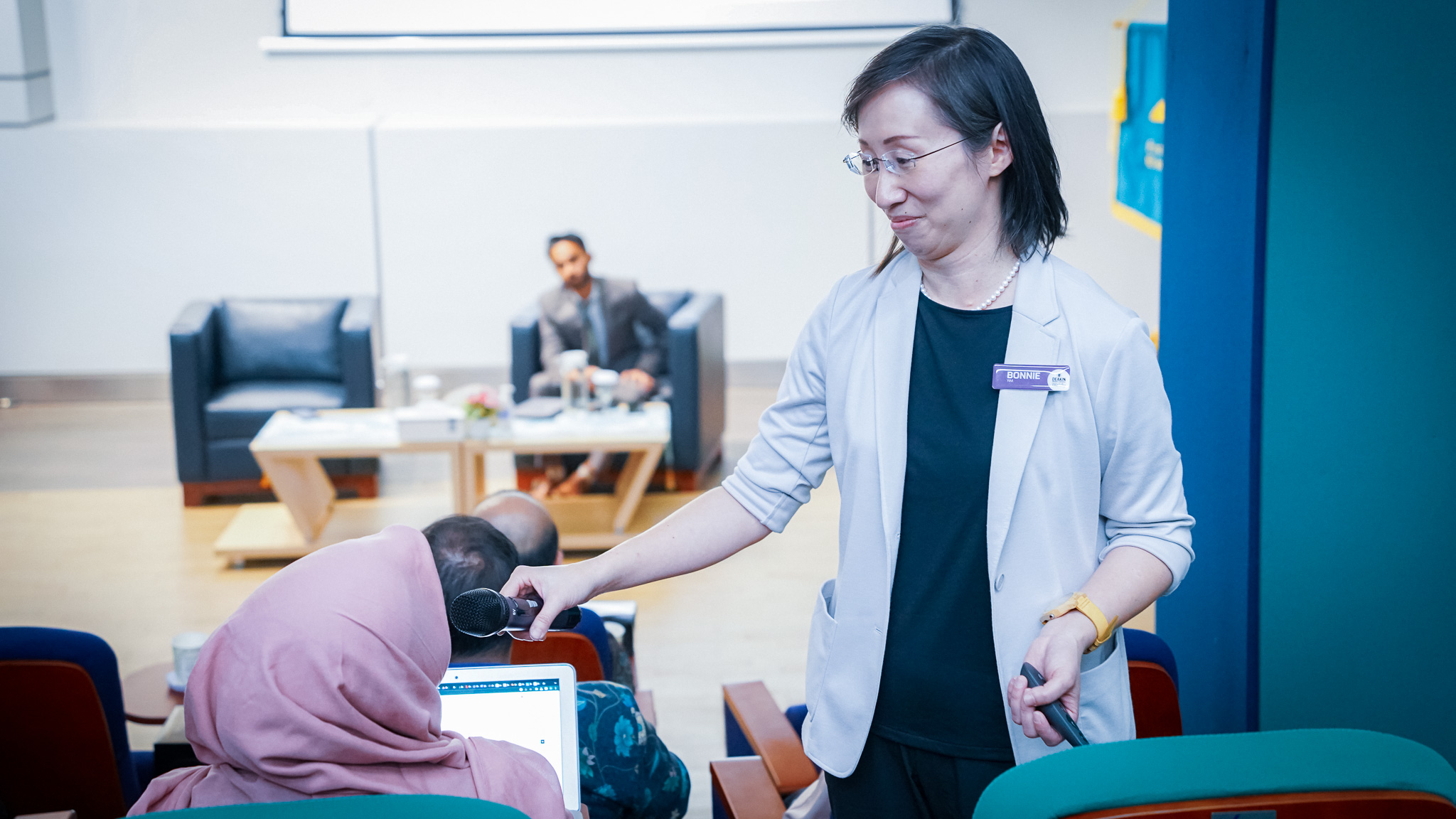Exploring AI and the Future of Educational Leadership
December 31, 2024Contributor: Supriyono | Editor: Dadi Darmadi

The UIII Faculty of Education, in collaboration with the American Institute for Indonesian Studies (AIFIS), hosted an insightful and thought-provoking virtual LunchTalk #36 with Prof. Khalid Arar from the College of Education, Texas State University, USA. The session, titled “Human-Machine Symbiosis: AI and the Future of Educational Leadership,” explored the transformative potential of artificial intelligence (AI) in education, specifically in leadership and decision-making.
In his opening remarks, Prof. Arar, who is also the editor-in-chief of the ‘Leadership and Policy in Schools’ journal, emphasized the importance of bridging the gap between Western-centric academic publications and the vast population of Asia, including Indonesia. He called for more inclusive scholarship in the field of educational leadership and urged participants to consider submitting their work to the journal.
The crux of Prof. Arar's presentation revolved around the symbiotic relationship between humans and AI, proposing that the future of educational leadership could thrive through collaboration between human expertise and machine intelligence. He invited the audience, comprising educators and scholars, to reflect on key questions regarding AI's integration in education. These included ethical considerations, the role of AI in shaping educational values, and the desired outcomes of human-AI collaboration.
One central theme of the talk was the evolution of education, from its roots in the Industrial Revolution to the current age of AI and digital literacy. Prof. Arar discussed the paradigm shifts that have occurred in education, asking whether we should embrace or resist AI's integration in schools. He also highlighted how AI's capabilities, such as rapid data analysis, could revolutionize decision-making processes in educational institutions.
Prof. Arar shared several examples of AI applications in educational leadership, such as using AI for recruiting educational leaders, analyzing big data to improve institutional effectiveness, and enhancing the decision-making process through AI-generated scenarios. He stressed the importance of human-AI symbiosis, noting that both humans and AI make decisions by processing vast amounts of data—humans through their biological brains and AI through artificial neural networks.
The presentation also touched upon the ethical challenges surrounding AI use in academic work. Prof. Arar pointed out the importance of addressing bias, fairness, and ethical guidelines in AI applications. He urged the audience to co-create knowledge and adapt to the evolving educational landscape by reimagining educational leadership through AI.
In the latter part of the session, Prof. Arar shared insights from his recent research, including a bibliometric analysis on AI in educational leadership and a thematic study on AI's impact on the field. He discussed the alignment of AI research with the United Nations' Sustainable Development Goals, particularly in promoting quality education.
The event concluded with an interactive symposium, allowing participants to engage in discussions about the possibilities of AI in educational leadership. Prof. Arar emphasized the importance of collaboration and co-thinking, urging the academic community to continue exploring AI's potential to reshape education and leadership.
By hosting such an event, UIII continues to demonstrate its values of innovation, inclusivity, and forward-thinking leadership in higher education. The university provides a platform for educators, scholars, and thought leaders to explore the intersections of education and technology, preparing its community for the challenges and opportunities that lie ahead in an increasingly AI-driven world.
- Grit, Innovation, and Adaptation: Key Themes in FoE’s 3rd Graduate Forum for Education Future
- Student-Led Research Community Series Kick Off with Academic Publishing Session
- Advancing Institutional Governance through Risk Management Training
- A Night of Unity: International Iftar Brings Students Together in Celebration
- Vice Minister Joins Iftar with UIII International Students, Hearing Their Stories
- FisFastFest Showcases ‘TransformMe’ Spirit with Intense Quiz Competition
- Ramadan Unites Us: UIII Hosts Iftar Gathering to Strengthen Bonds
- It’s Time for Africa! UIII Aims to Expand Outreach in African Continent
- Future Innovators Gather at UIII for 1000x Challenge Mentoring & Briefing
- UIII and Al-Azhar Strengthen Ties for the Advancement of Islamic Civilization


